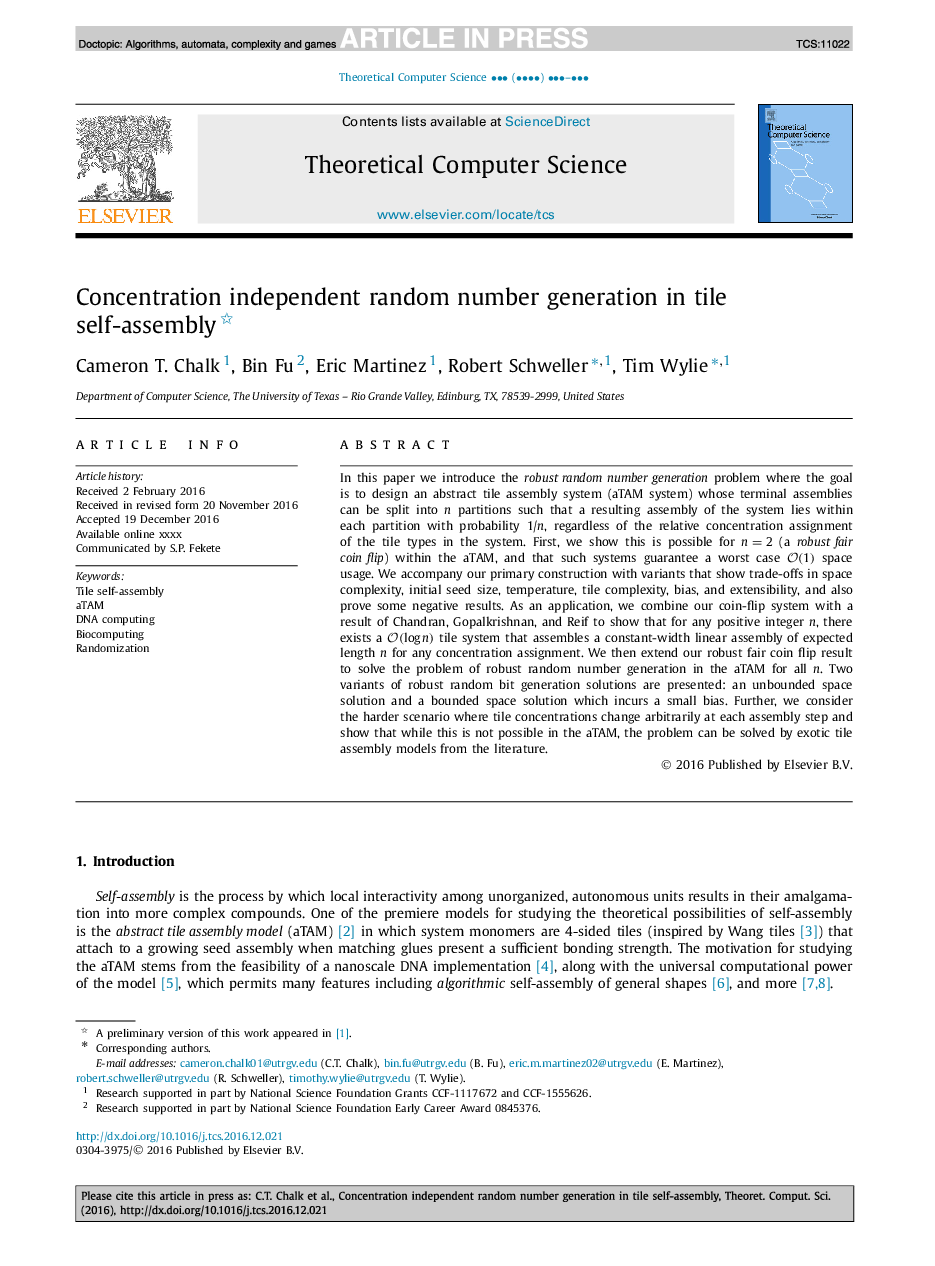| Article ID | Journal | Published Year | Pages | File Type |
|---|---|---|---|---|
| 4952241 | Theoretical Computer Science | 2017 | 15 Pages |
Abstract
In this paper we introduce the robust random number generation problem where the goal is to design an abstract tile assembly system (aTAM system) whose terminal assemblies can be split into n partitions such that a resulting assembly of the system lies within each partition with probability 1/n, regardless of the relative concentration assignment of the tile types in the system. First, we show this is possible for n=2 (a robust fair coin flip) within the aTAM, and that such systems guarantee a worst case O(1) space usage. We accompany our primary construction with variants that show trade-offs in space complexity, initial seed size, temperature, tile complexity, bias, and extensibility, and also prove some negative results. As an application, we combine our coin-flip system with a result of Chandran, Gopalkrishnan, and Reif to show that for any positive integer n, there exists a O(logâ¡n) tile system that assembles a constant-width linear assembly of expected length n for any concentration assignment. We then extend our robust fair coin flip result to solve the problem of robust random number generation in the aTAM for all n. Two variants of robust random bit generation solutions are presented: an unbounded space solution and a bounded space solution which incurs a small bias. Further, we consider the harder scenario where tile concentrations change arbitrarily at each assembly step and show that while this is not possible in the aTAM, the problem can be solved by exotic tile assembly models from the literature.
Related Topics
Physical Sciences and Engineering
Computer Science
Computational Theory and Mathematics
Authors
Cameron T. Chalk, Bin Fu, Eric Martinez, Robert Schweller, Tim Wylie,
